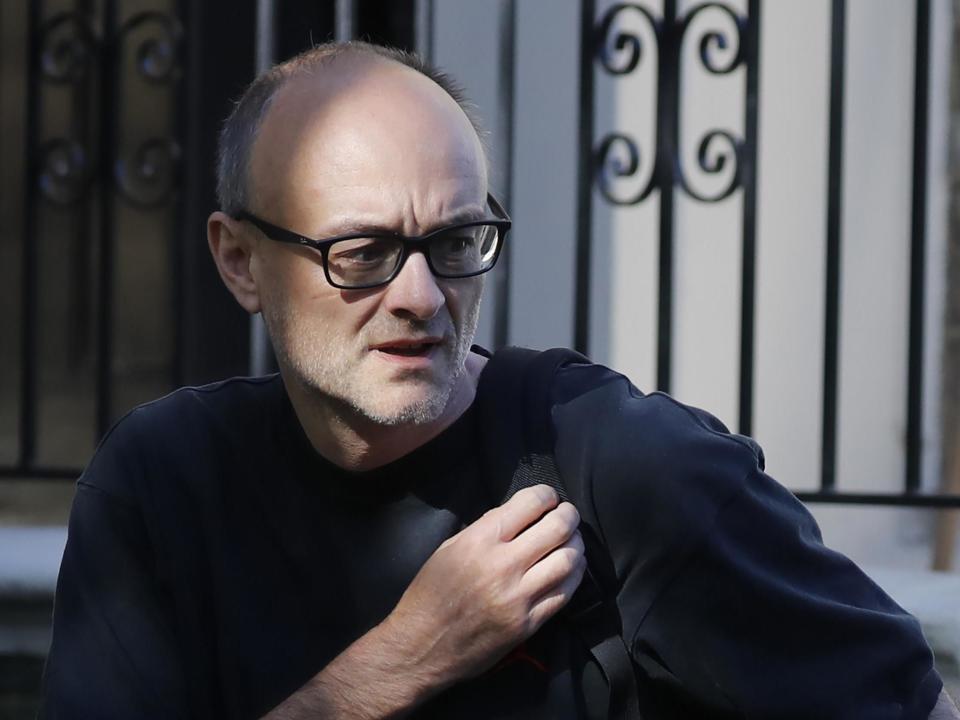Metropolitan Police urged to investigate Dominic Cummings alleged coronavirus lockdown breaches

Police in London and Durham and the Crown Prosecution Service have been urged to launch new investigations into whether Dominic Cummings’s movements at the height of the coronavirus pandemic broke lockdown rules.
Nazir Afzal, former chief prosecutor for northwest England, said he is “concerned that police and prosecutors have not received all relevant information and that their decision making will be incomplete as a result”.
Mr Afzal, who has become the figurehead of a citizens’s bid to ensure the actions of the prime minister’s top aide are properly scrutinised, added that his legal team already has been given “information from reliable sources that reflect[s] poorly on everybody who has considered the allegations thus far”.
A short probe by Durham Constabulary concluded in May that Mr Cummings “might have” breached coronavirus legislation with his 50-mile round trip to Barnard Castle, but the force decided not to take further action. His 260-mile drive to Durham from London after learning that his wife Mary Wakefield was displaying Covid-19 symptoms have not yet been investigated.
Lawyers for Mr Afzal, whose brother died with Covid-19 in early April, have now written to Metropolitan Police commissioner Dame Cressida Dick, Durham Police’s chief constable Jo Farrell, and the CPS’s director of public prosecutions, Max Hill calling for immediate inquiries into Mr Cummings’s movements.
The letters from legal firm Hodge Jones & Allen ask that the public, Mr Afzal and the CPS be given enough information to understand whether the Downing Street adviser should be charged and prosecuted.
The solicitors argue that “there is a continuing pressing public imperative to ensure strict compliance by the public with the regulations, which makes this matter urgent”.
They added that a number of public authorities, including the police, have indicated Mr Cummings’s actions have undermined the importance of compliance, and made the task of police enforcement with the public more difficult across the country.
Each correspondence contains a 9-page annex setting out the facts known so far, some of the relevant legal framework, and the government’s “stay at home” guidance at the relevant time.
The letter to Durham Police said that it appears “not all of the relevant evidence” had been gathered during its “short, narrow investigation” and that a number of Mr Cummings’s alleged breaches in Durham appeared not to have been investigated at all.
Scotland Yard were urged to begin their own probe into Mr Cummings’s movements in London, including his decision to leave his home on 27 March, after finding out his wife was displaying coronavirus symptoms.
The CPS were encouraged to play a proactive role in considering further relevant evidence amid “serious and widespread public concern about Mr Cummings’s apparently unlawful conduct”.
“I am troubled that previous correspondence from people including MPs has gone unanswered,” Mr Afzal said.
“Public confidence is damaged as a consequence. We have already had new information from reliable sources that reflect[s] poorly on everybody who has considered the allegations thus far, including the likelihood that there are other relevant events.
“I do not believe in trial by media so I do not intend to give any more detail at this stage. However, I encourage anybody with more information to contact my legal team.
“As I have always said, my motivation is simply to get to the truth on behalf of all those who have made sacrifices to keep their fellow citizens safe.”
His solicitor, Mike Schwarz, added: “Mr Afzal was a very senior prosecutor. It is his simple wish and expectation that current senior police investigators and prosecutors are reminded of their responsibilities and carry out their duties in Mr Cummings’s case.
“By failing to do so they would perpetuate the public’s perception that there is one rule for those in positions of power and another for ordinary citizens. Further, it would damage confidence in the criminal justice system, reduce compliance with measures to tackle Covid-19, and put more lives at risk.”
Read more
Met police deny ‘misconduct’ in stop and search of Christie athletes

